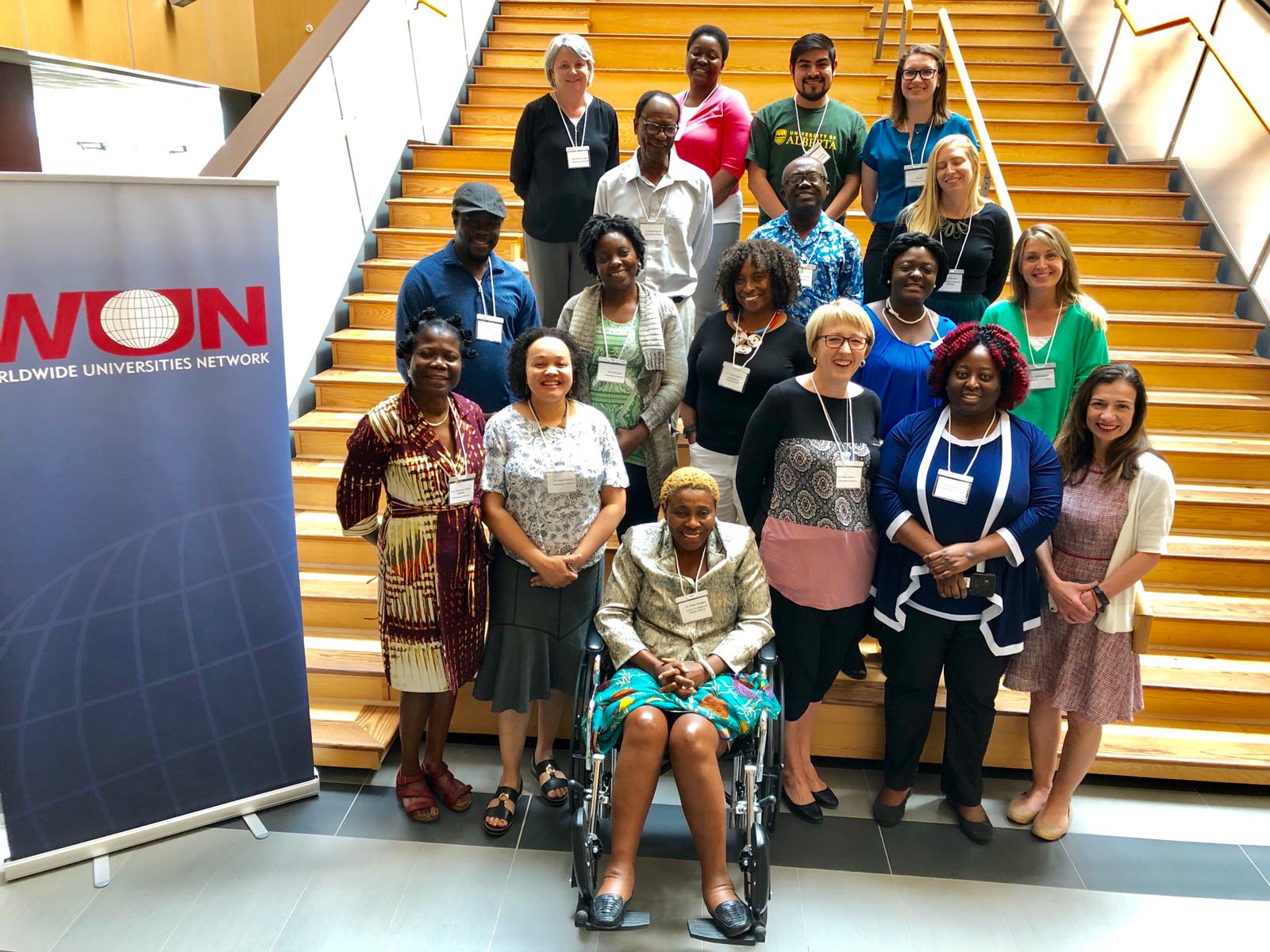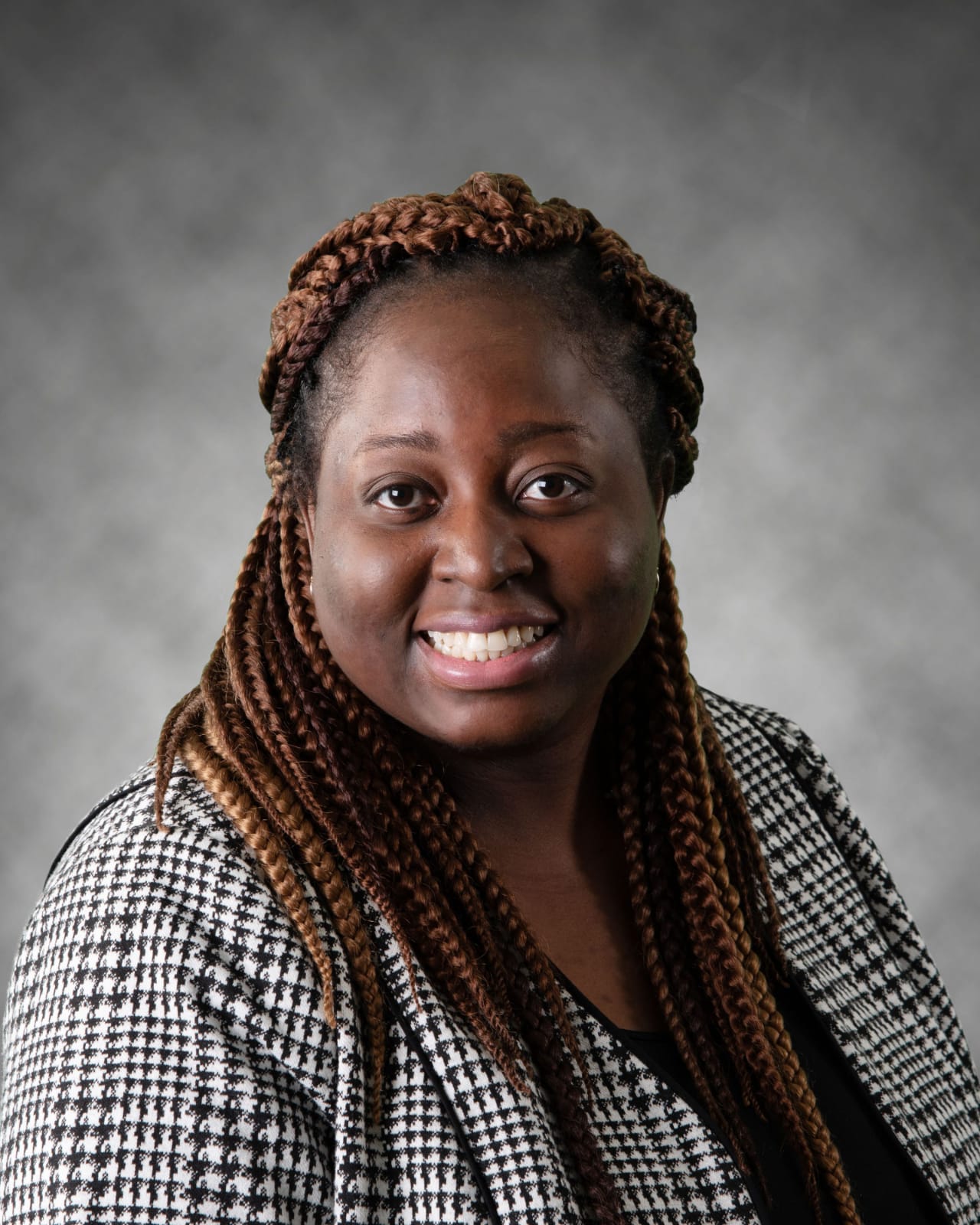
Members of the African child migration network and graduate students at the University of Alberta during the first in person meeting of the group in June 2019
Improving healthcare outcomes for immigrant populations in Canada provides a range of challenges for frontline workers. As more populations from across the globe look to Canada as a land of promise and new opportunities, navigating their unique healthcare needs has become the crux of Dr. Bukola Salami's research.
Salami is an Associate Professor and Principal Investigator of Health and Immigration Policies and Practices Research Program with UAlberta's Faculty of Nursing and what started as research into temporary foreign workers in Alberta has expanded to touch on migrant and refugee populations across four continents.
Through Worldwide Universities Network (WUN), Dr. Salami has been able to partner her research with universities in Ghana, South Africa, Australia, Nigeria, United Kingdom, Netherlands, New Zealand, the US and other institutions in Canada to help improve healthcare outcomes for migrants and refugees throughout Africa. She points out that her research can now touch on some of the most affected and most vulnerable living in displacement camps.
"By and large, the most prevalent reason why people live in displacement camps is to escape violence and conflict in their homes," says Salami. She explains that oftentimes, the people living in these camps are youths with little or no support to help them. "The mental health toll impacts that accompany losing your home, being displaced and witnessing conflict can be immense. One area of our research is to see better mental health outcomes for children and youth living in displacement camps."
In collaboration with WUN partners, Dr. Salami is completing a comprehensive systematic review of all the available literature on the health of internally displaced African children. After that, the team of academics from across the globe will be able to identify the research gaps and begin preparing research to better improve the information available to healthcare providers working with displaced people. The team is also reviewing the literature on the health of African refugees and immigrants.
Salami explains that displacement is currently a worldwide phenomenon that touches every section of the globe. To have a team of researchers from different parts of the world and a vast array of backgrounds means that more gaps in literature can be discovered and more solutions can be found.
"By having so many different researchers from different fields and regions, we can work collaboratively and holistically to address a larger range of health issues faced by this population," says Salami, pointing out that UAlberta's reputation as a leader in healthcare research helped inspire more researchers and institutions to join in on the project and reach much further for clearer results. "In a short amount of time, we've already covered a lot of ground in our research, and much of that progress is thanks to the research partners we connected with through WUN."
With the help of the UAlberta Office of the Vice-President (Research and Innovation), Salami made the connection with WUN, quickly seeing how her research falls into two specific global challenges WUN is looking to address understanding cultures and global public health. Salami's research presents an opportunity for UAlberta to be a leader in international research that addresses significant global issues for African migrant and refugee populations.
 According to Salami, one area of health, in particular, will need a lot more attention for these populations. "Sexual and reproductive healthcare for people living in internally displaced camps basically doesn't exist in many camps," says Salami. She goes on to elaborate on how the preliminary research she and her research team have done on this topic so far shows how wide the gap is in terms of sexual healthcare delivery is in these camps and how dire the need is to introduce this aspect of healthcare delivery. "By introducing more sexual and reproductive health to this population, we can mitigate many of the challenges they face and help with more positive health outcomes."
According to Salami, one area of health, in particular, will need a lot more attention for these populations. "Sexual and reproductive healthcare for people living in internally displaced camps basically doesn't exist in many camps," says Salami. She goes on to elaborate on how the preliminary research she and her research team have done on this topic so far shows how wide the gap is in terms of sexual healthcare delivery is in these camps and how dire the need is to introduce this aspect of healthcare delivery. "By introducing more sexual and reproductive health to this population, we can mitigate many of the challenges they face and help with more positive health outcomes."
WUN was able to provide the seed funding for this research to get it off the ground. The team subsequently received funding from the Social Sciences and Humanities Research Council of Canada Partnership grant to build a network that will examine the lives of vulnerable migrant children in Canada and Ghana. The network currently includes 28 researchers from 4 continents. Salami stated that "this research and network will assist in developing useful knowledge that will improve the lives of vulnerable migrant children including child and youth victims of human trafficking and those exposed to gun violence".
Even this early into the research project, Salami is already seeing the immense possibilities this collaboration could provide to help the millions of people displaced and trying to find new homes all across the globe. Many of the healthcare issues faced by African migrant and refugee populations are not isolated in African countries. As they look to new countries to call home, they bring many of the healthcare challenges they face with them. Dr. Salami's current research is an extension of her past work and engagement with African communities in Canada, especially African migrant and refugee children.
"Of the 7.4 million foreign-born people living in Canada, more than 13 per cent are from an African country originally, and that's just Canada alone," says Salami. She explains that addressing the healthcare challenges faced by these populations, from mental health to sexual and reproductive health, the hardships they face from being displaced can be mitigated, leading to healthier people living in a healthier society. "No matter if their migration is in Africa or out of Africa, we have a goal to see better and consistent international healthcare outcomes and I don't think a research project of this size and scale would have been possible without support from UAlberta International and WUN."